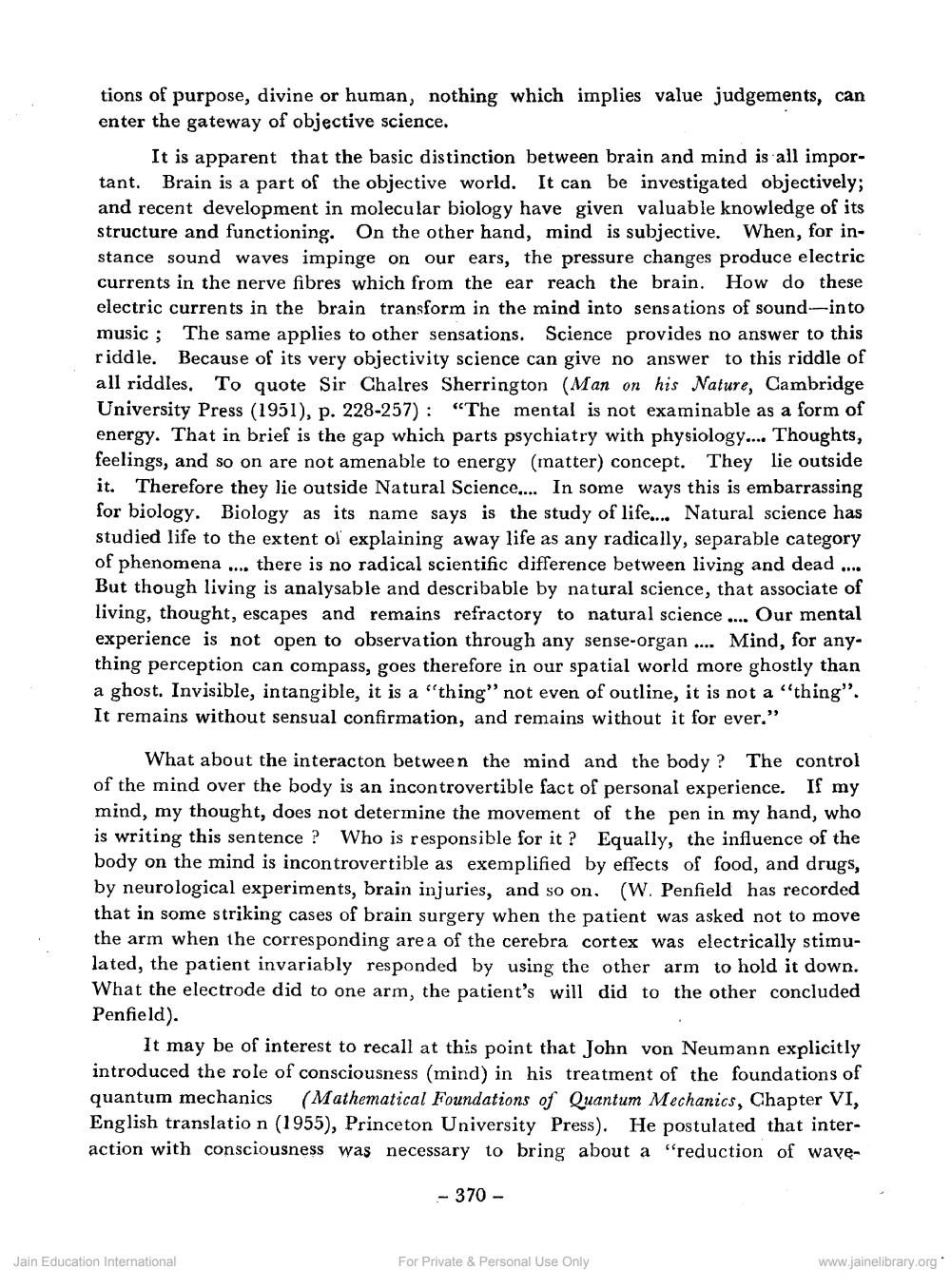________________
tions of purpose, divine or human, nothing which implies value judgements, can enter the gateway of objective science.
It is apparent that the basic distinction between brain and mind is all important. Brain is a part of the objective world. It can be investigated objectively; and recent development in molecular biology have given valuable knowledge of its structure and functioning. On the other hand, mind is subjective. When, for instance sound waves impinge on our ears, the pressure changes produce electric currents in the nerve fibres which from the ear reach the brain. How do these electric currents in the brain transform in the mind into sensations of sound-into music ; The same applies to other sensations. Science provides no answer to this riddle. Because of its very objectivity science can give no answer to this riddle of all riddles. To quote Sir Chalres Sherrington (Man on his Nature, Cambridge University Press (1951), p. 228-257): “The mental is not examinable as a form of energy. That in brief is the gap which parts psychiatry with physiology.... Thoughts, feelings, and so on are not amenable to energy (matter) concept. They lie outside it. Therefore they lie outside Natural Science... In some ways this is embarrassing for biology. Biology as its name says is the study of life.... Natural science has studied life to the extent of explaining away life as any radically, separable category of phenomena .... there is no radical scientific difference between living and dead .... But though living is analysable and describable by natural science, that associate of living, thought, escapes and remains refractory to natural science ... Our mental experience is not open to observation through any sense-organ .... Mind, for any. thing perception can compass, goes therefore in our spatial world more ghostly than a ghost. Invisible, intangible, it is a "thing" not even of outline, it is not a "thing". It remains without sensual confirmation, and remains without it for ever."
What about the interacton between the mind and the body? The control of the mind over the body is an incontrovertible fact of personal experience. If my mind, my thought, does not determine the movement of the pen in my hand, who is writing this sentence? Who is responsible for it ? Equally, the influence of the body on the mind is incontrovertible as exemplified by effects of food, and drugs, by neurological experiments, brain injuries, and so on. (W. Penfield has recorded that in some striking cases of brain surgery when the patient was asked not to move the arm when the corresponding area of the cerebra cortex was electrically stimulated, the patient invariably responded by using the other arm to hold it down. What the electrode did to one arm, the patient's will did to the other concluded Penfield).
It may be of interest to recall at this point that John von Neumann explicitly introduced the role of consciousness (mind) in his treatment of the foundations of quantum mechanics (Mathematical Foundations of Quantum Mechanics, Chapter VI, English translation (1955), Princeton University Press). He postulated that interaction with consciousness was necessary to bring about a "reduction of wave
- 370 -
Jain Education International
For Private & Personal Use Only
www.jainelibrary.org




